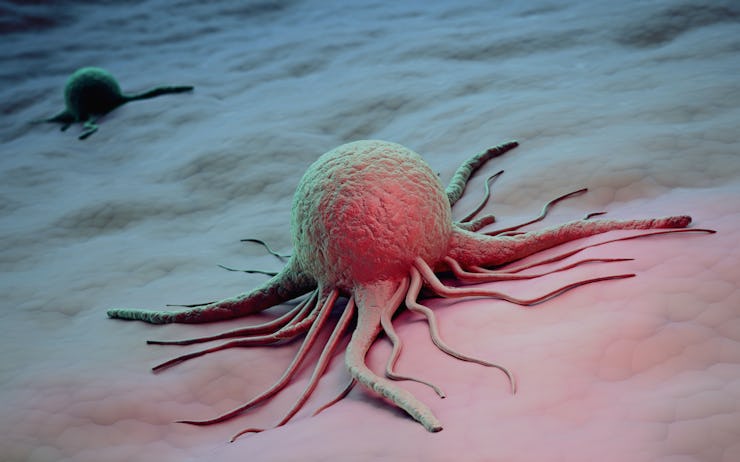Google's A.I. diagnoses breast cancer better than doctors
Catching cancer early is the best way to beat it.

It’s important to detect breast cancer as early as possible to begin treatment before it can spread, and it appears artificial intelligence might be able to help. A team of researchers has developed an A.I. system that can diagnose breast cancer from an X-ray image better than a radiologist. This new research was recently published in the journal Nature.
Researchers from Google Health and the Imperial College London trained an A.I. system to diagnose breast cancer using X-ray images from nearly 29,000 mammograms. The system was able to diagnose breast cancer more effectively than six radiologists it was put up against.
“Despite the existence of screening programs worldwide, the interpretation of mammograms is affected by high rates of false positives and false negatives,” the study reads. “Here we present an artificial intelligence (AI) system that is capable of surpassing human experts in breast cancer prediction.”
The A.I. system was better than any singly radiologist it was put up against and about as good as two radiologists working together. The study found the A.I. produced fewer false positives than an individual radiologist. It reduced false positives by 5.7 percent for U.S. subjects, and it reduced false negatives by 9.4 percent for U.S. subjects.
This kind of A.I. could help address shortages in radiologists and could become another tool to help doctors reduce the number of times someone is misdiagnosed. Around 20 percent of mammograms produce a false negative.
The researchers write that this study will help pave the way for clinical trials. It also provides further evidence that A.I. could be helpful for detecting a whole range of different types of cancer.
As Inverse reported in May of last year, Google has also been developing A.I. that can help spot lung cancer. Lily Peng, from the Google A.I. healthcare team, said at the time that lung cancer is unfortunately not caught early 80 percent of the time, which means more people die from it than otherwise would. This kind of technology could help reduce that number significantly.
Peng said this A.I. could help increase the survival rate of lung cancer patients by 40 percent. When it was used on an early CT scan of someone who was later diagnosed with lung cancer, the A.I. was able to detect that the person had cancer when five out of six doctors could not.
Things don’t always work as perfectly in the real world as they do in the lab, but studies like this one suggest A.I. could change the way we screen for cancer and help countless individuals get a proper diagnosis. We’re looking forward to seeing how this A.I. performs in clinical trials.
Abstract:
Screening mammography aims to identify breast cancer at earlier stages of the disease, when treatment can be more successful1. Despite the existence of screening programmes worldwide, the interpretation of mammograms is affected by high rates of false positives and false negatives2. Here we present an artificial intelligence (AI) system that is capable of surpassing human experts in breast cancer prediction. To assess its performance in the clinical setting, we curated a large representative dataset from the UK and a large enriched dataset from the USA. We show an absolute reduction of 5.7% and 1.2% (USA and UK) in false positives and 9.4% and 2.7% in false negatives. We provide evidence of the ability of the system to generalize from the UK to the USA. In an independent study of six radiologists, the AI system outperformed all of the human readers: the area under the receiver operating characteristic curve (AUC-ROC) for the AI system was greater than the AUC-ROC for the average radiologist by an absolute margin of 11.5%. We ran a simulation in which the AI system participated in the double-reading process that is used in the UK, and found that the AI system maintained non-inferior performance and reduced the workload of the second reader by 88%. This robust assessment of the AI system paves the way for clinical trials to improve the accuracy and efficiency of breast cancer screening.